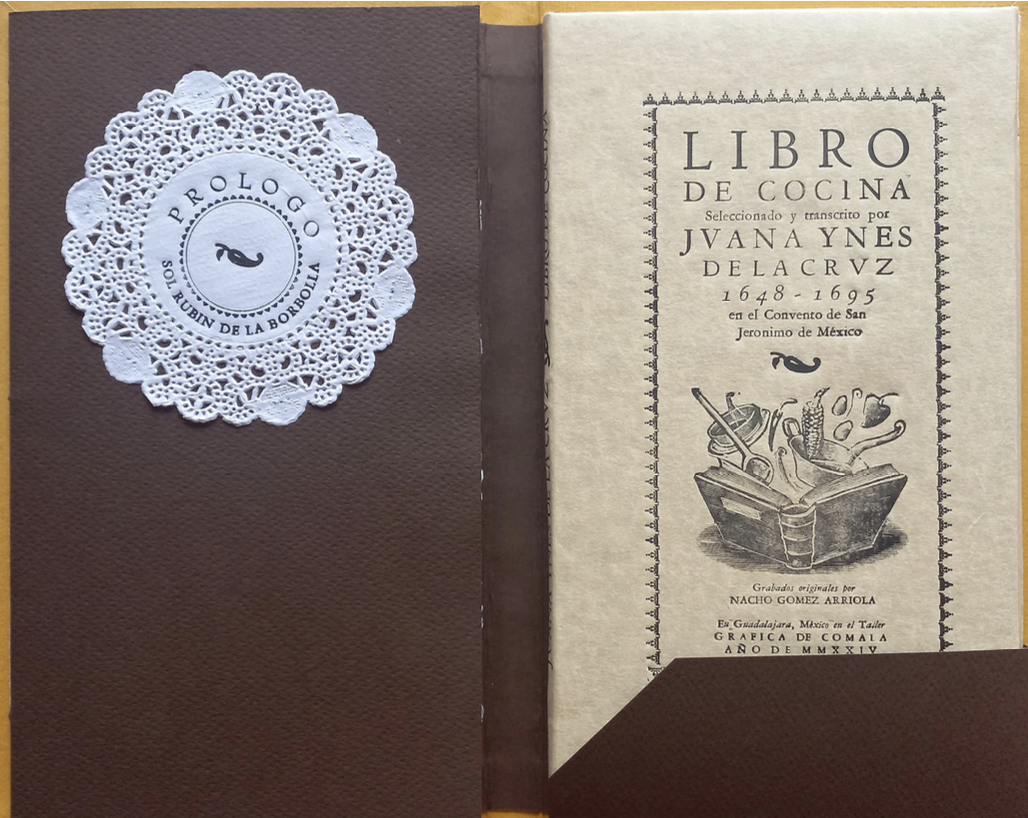The Flavors of History: Traditional Mexican Recipes Inspired by Sor Juana

To connect with a culture, especially one as rich and ancient as Mexico’s, we can turn to books that recount its history, as well as research that includes maps and photographs to illustrate these stories. Taking it a step further, museums offer access to archaeological artifacts, reproductions of codices, and historical clothing. Visiting an archaeological site, exploring small towns, or walking through the streets of a historic center brings us even closer to the echoes of the past.
However, nothing transports us back in time quite like food. Flavors evoke memories, and certain ingredients, unique to specific regions, provide not just identity but also a sense of nationality. In this context, Mexican cuisine, recognized as a World Heritage, stands out as a living tradition passed down from generation to generation. While recipes are widely shared online today, few books capture the essence of this tradition as beautifully as the Cookbook of Sor Juana Inés de la Cruz.
This special edition, reissued in 1979 by historians Muriel de González Mariscal and Guadalupe Pérez San Vicente, is remarkable not only for its content but also for its presentation. Designed by the Taller Gráfica de Comala, only 150 copies were printed, each handmade with original engravings and movable metal type. The book features an introductory text by Sol Rubín de la Borbolla, a prominent scholar of Mexican culture.
The book includes traditional recipes like cheese fritters, ricotta and wind fritters, hojuelas, and sweets made with cream, beet, walnut, butter, mamey, and pineapple. These recipes do more than please the palate; they invite us to reflect on time. What does the past taste like? Often, a particular flavor takes us back to childhood or a meaningful moment. Cooking these recipes immerses us in the 17th century, a time when the flavors of America, Europe, and the Arab world blended to create something new: Mexican identity.
While change is a natural part of life, humans strive to preserve the things that connect us to the past. Traditions are a cornerstone of our identity, and preserving them is a shared responsibility. Sor Juana Inés de la Cruz may never have imagined that her book would resonate across centuries, but she left us a fragment of history. Through this text, we rediscover her daily life and her relationship with gastronomy, extending her legacy beyond her writings and historical contributions.
Inkitt: BbyKevs
Wattpad: @SugoiKevs
TikTok: @bbykevs


